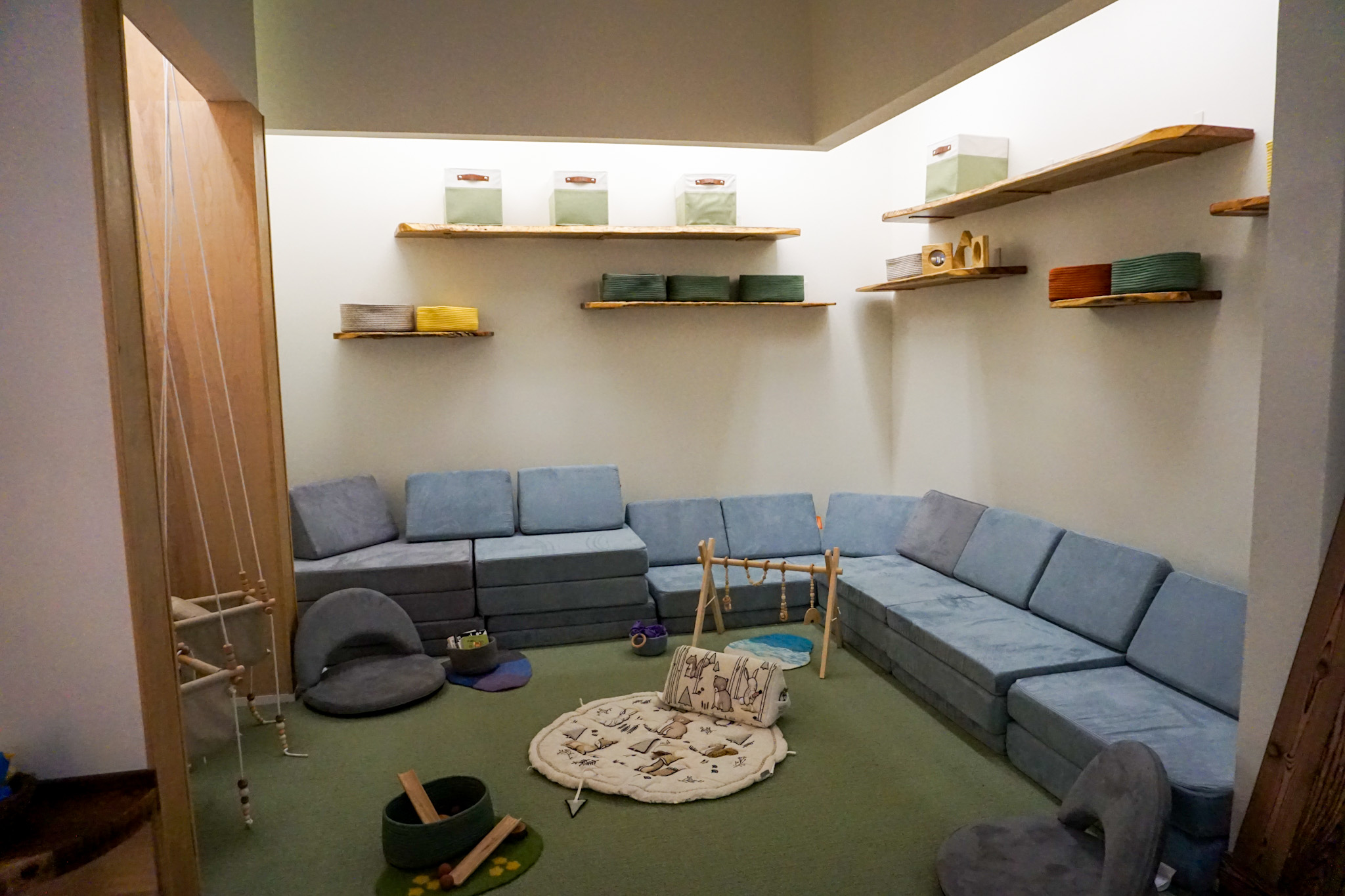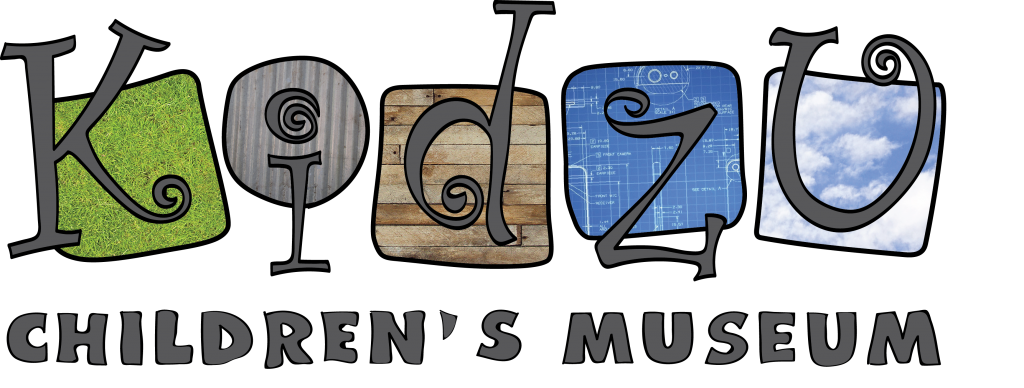Kidzu’s Nest is constructed much like a bird’s nest; the space is held together by interwoven values and ideas drawn from our community, different educational philosophies, and current research.
In the spring of 2021, Kidzu conducted a community needs assessment (through web-based surveys and semi-structured interviews) with local early childhood professionals. We wanted to understand the various needs of infants and their caregivers, potential barriers to access, and action items for The Nest.
The data gathered from this report was used to create a physical museum space and associated programming that is culturally competent and accommodating to all babies, infants, and caregivers.
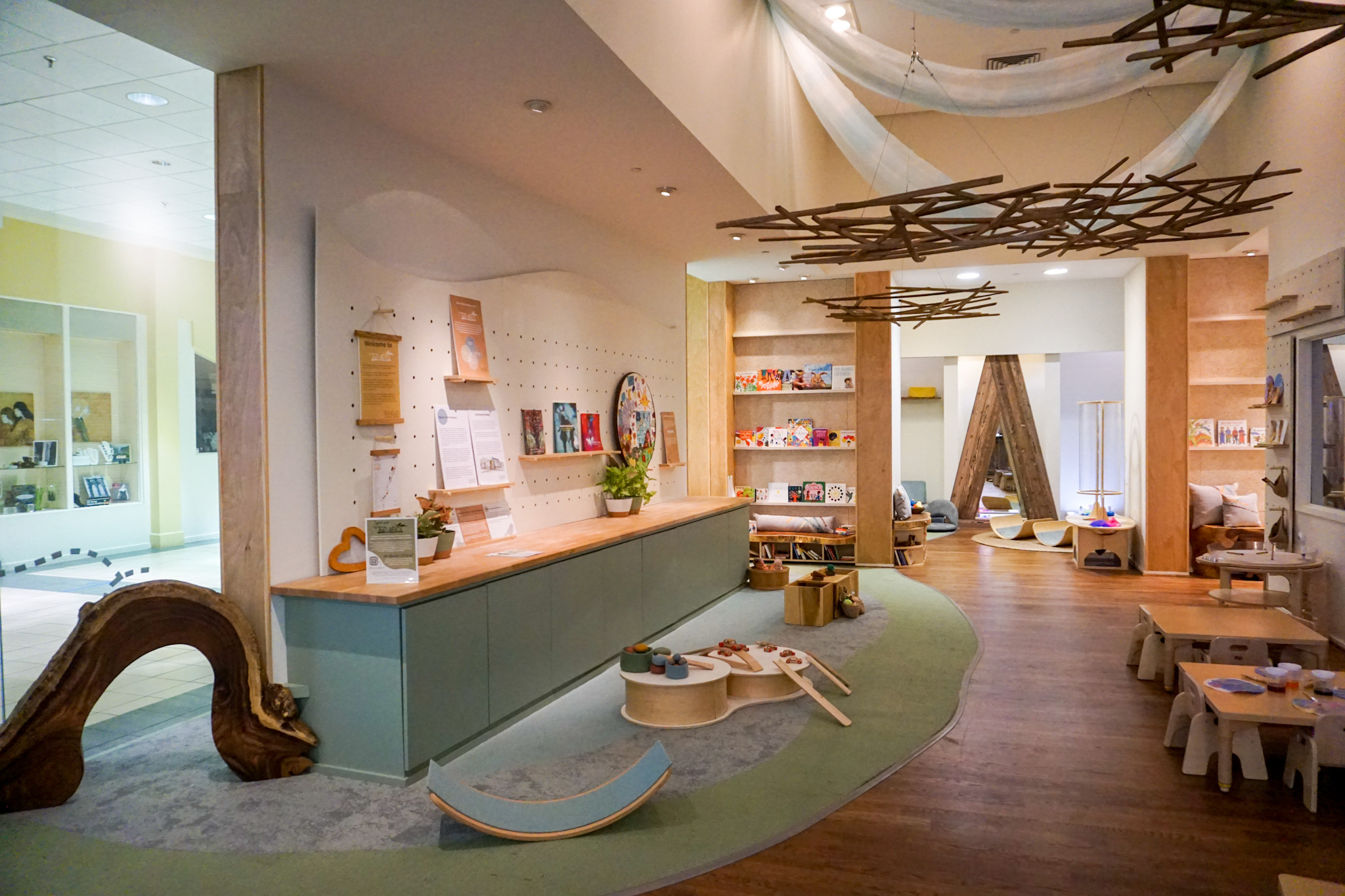
The materials and invitations to play are inspired by the schools in Reggio Emilia, Italy, the Abecedarian Project, Kaleidoscope Play and Learn Framework, and the STEM Innovation for Inclusion in Early Education Center.
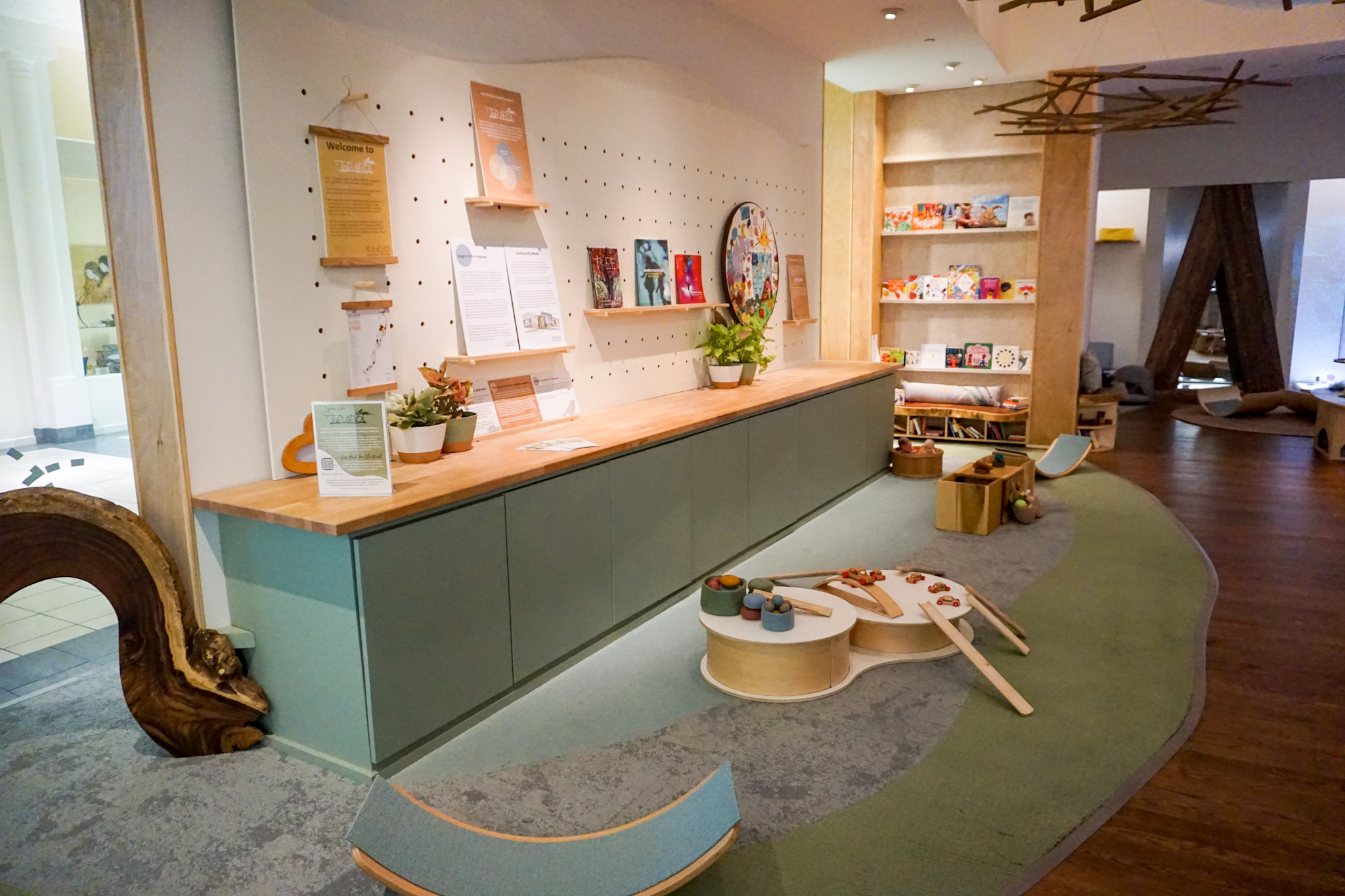
Reggio Emilia Pedagogy
The Reggio approach refers to an early learning philosophy that originated in Reggio-Emilia, Italy. Central to this approach is the firm belief that a child, even at the earliest age, is creative, competent and born with extraordinary potential. In Reggio-inspired spaces, children create meaning and make sense of their world within the context of the physical setting, and spaces are thoughtfully arranged to include natural light, the use of color, natural, and open-ended materials.
To learn more about the Reggo Emilia philosophy, click here.
The Abecedarian Project and Approach
The Carolina Abecedarian Project, from UNC’s Frank Porter Graham Child Development Institute, is a 50-year research study that documented the positive effects that quality early learning experiences have on school readiness and later life successes. The researchers developed Learning Games to support social, emotional, cognitive, and physical development, with a particular emphasis on language development.
To learn more about the research, click here.
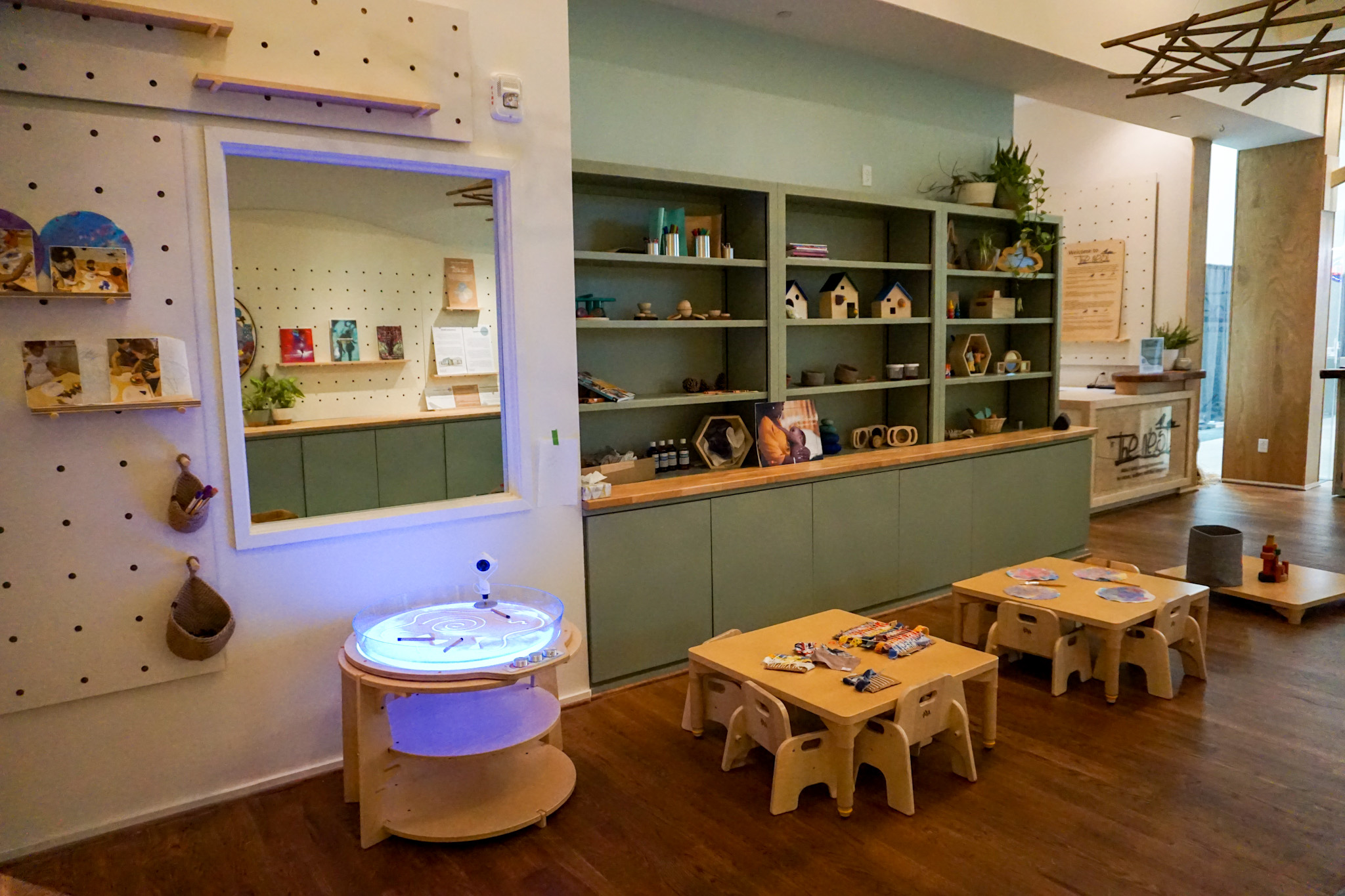
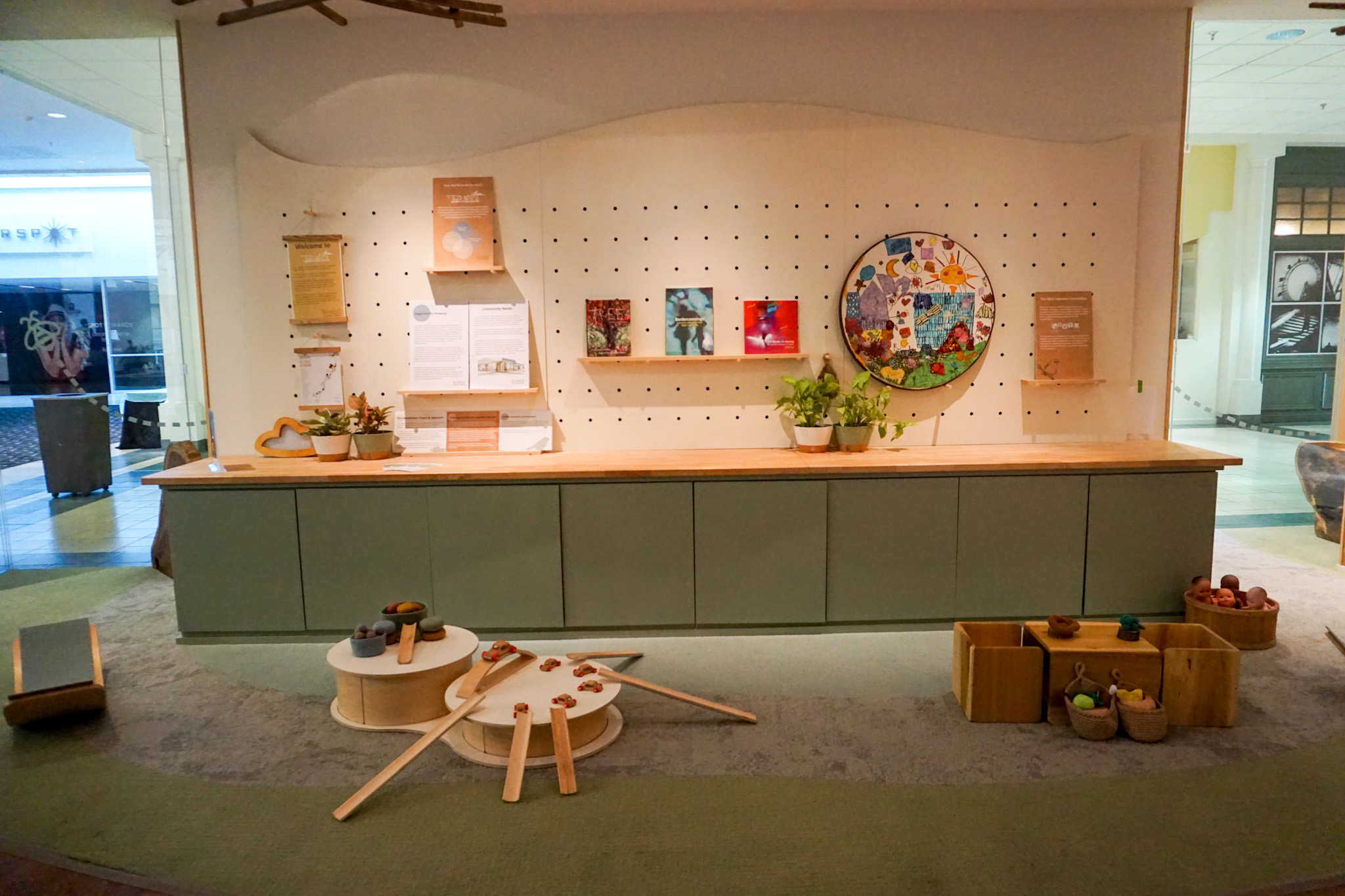
Kaleidoscope Play and Learn Supported Playgroups (KPL)
KPL targets Family, Friend, and Neighbor (FFN) caregivers and views this type of child care as playing a vital role in contributing to children’s healthy development, school readiness, and lifelong success. This evidence-based curriculum strives to provide all caregivers with the information needed to promote healthy child development and provide children with intentional, developmentally appropriate learning experiences.
To watch a video about the KPL model, click here.
STEMIE Innovations and Techniques
Kidzu has partnered with UNC Frank Porter Graham’s (FPG) STEM Innovation for Inclusion in Early Education (STEMIE) Center to integrate inclusive, early childhood STEM learning into the environment and programming The Nest will be utilized as an incubator space for researching and evaluating STEM learning in young children. The research study seeks to improve learning experiences for young children in inclusive settings around science, technology, engineering, and mathematics (STEM). The Nest will be used to evaluate new models and practices related to the use of science, technology, engineering, and math (STEM) with infants, toddlers, and young children with and without disabilities in such places.
To learn more about the research and to access STEM resources, click here.
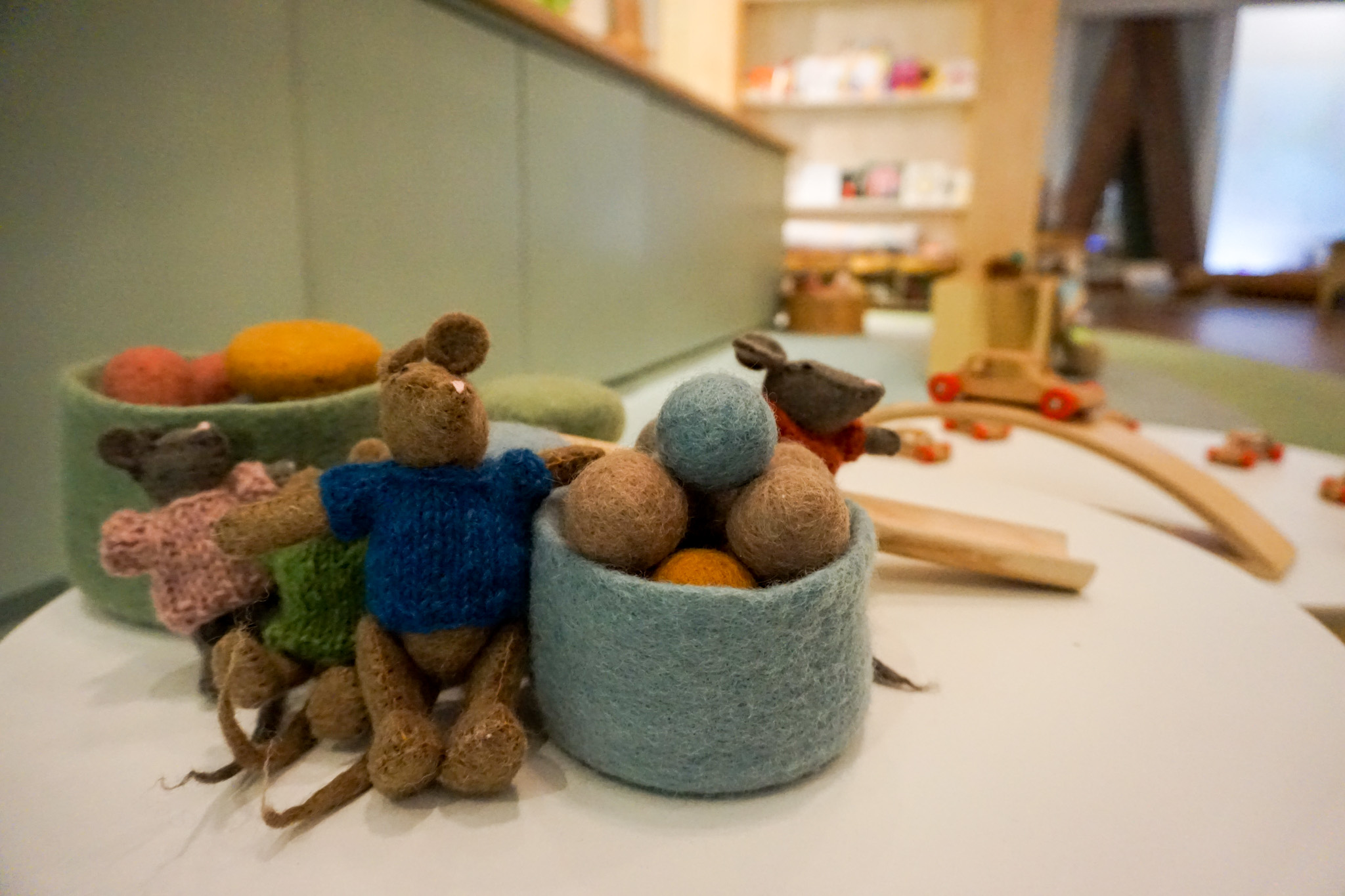
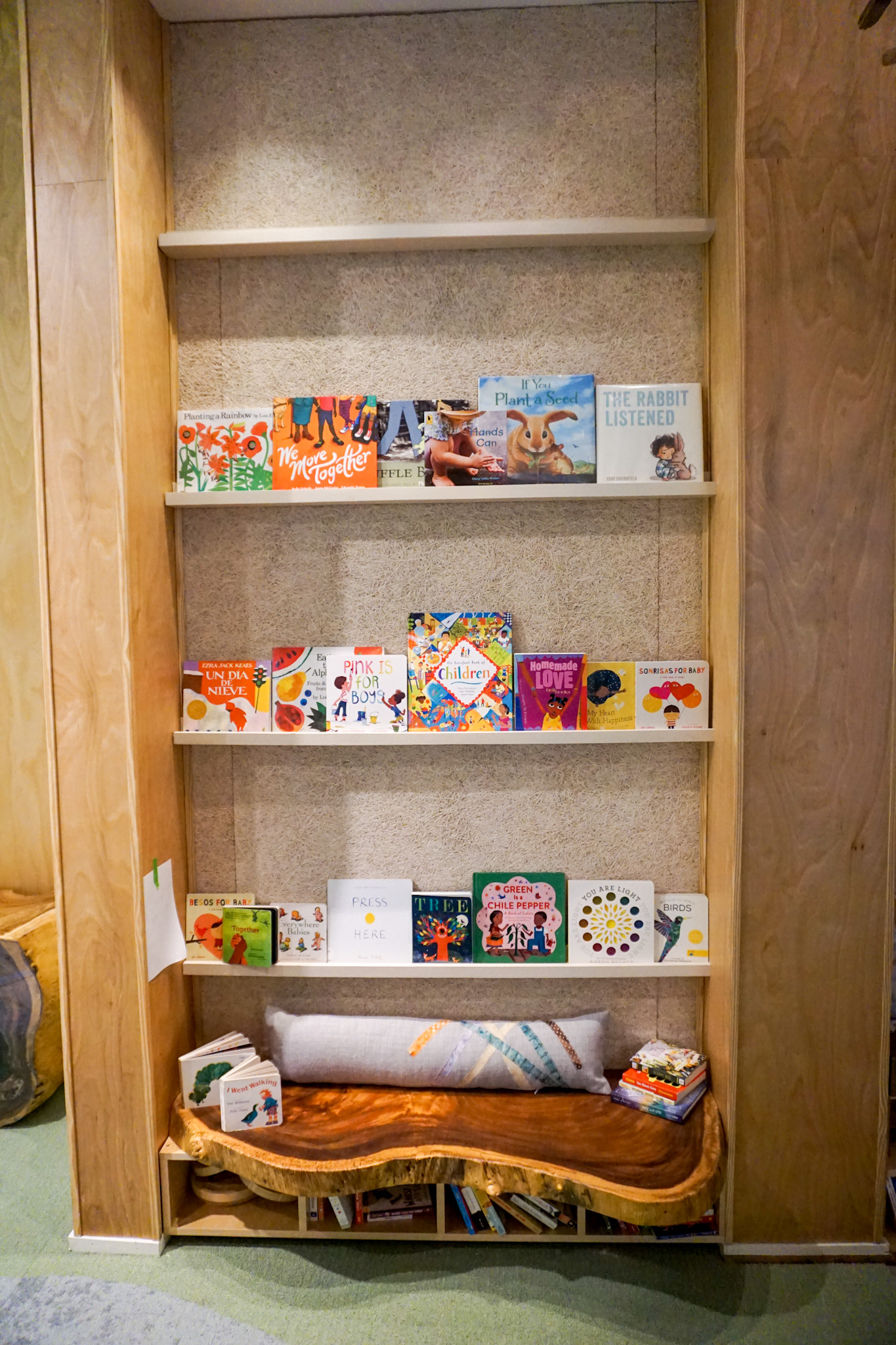
Community Involvement
The Nest Advisory Committee
Kidzu has convened a multi-disciplinary Nest advisory committee, consisting of representatives from UNC School of Education, Frank Porter Graham Child Development Institute, UNC Horizons, Duke University Center for Child and Family Policy, as well as many other organizations and thought leaders.
The Nest advisory committee meets quarterly and provides guidance and resources to enhance The Nest and associated programming. Kidzu is grateful for the commitment of our Nest advisory committee in ensuring that The Nest is grounded in best practices and is accessible to all members of our community.
Integration of the Arts and Community Expertise
The Nest has been co-curated with local artists, designers, and makers, including Jim Adams, Cameron Credle, Molly Trask, Jeannette Brossart, among others.
We will continue to work with local artists through our early childhood programming and implement a new artist residency program. Selected artists will be able to customize and use The Nest’s atelier, our Reggio-inspired art exploration area, to develop arts-based programming that foster the healthy development of children and instill a love of arts and creative expression.
Professional Development
The Nest will serve as a hub for open-source educational resources for child care providers across the state of North Carolina, and a hub for educator training and professional development. Kidzu hosts several interns from the UNC School of Education Masters in Teaching (MAT) and Human Development and Family Studies (HDFS) departments, and the Nest space will be a unique experience for these future educators to learn how infants learn in informal environments.
We will work closely with Early Head Start, Head Start, and other local and regional early childcare educators and providers, to provide access to professional development and continuing education (CE) credits.This space will continue to support the lifelong continuum of learning, and encourage early childhood professionals to learn about innovative practices and integrate them into their own settings.
